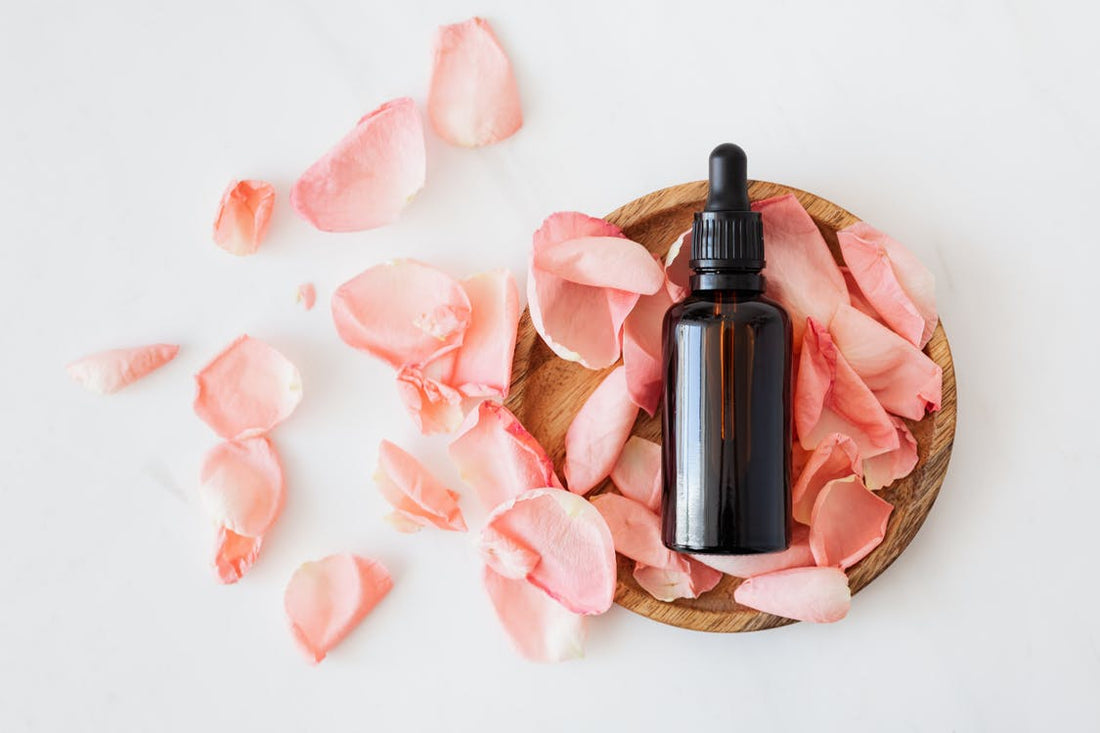
8 Sustainable skincare ingredients to look out for in your Next purchase

By Katreena Sarmiento
Sustainable skincare may be a little tricky to define because there are so many unregulated terms that a brand can use to mean almost anything. Beauty brands may claim to be environmentally friendly or ethical, but they may not practice what they preach and instead utilize the term "sustainability" as a marketing tool.
The good news is that there are ways to determine which skincare brands are genuinely sustainable. To support and promote sustainable beauty and personal care, look for brands and products that are: natural, organic, vegan, non-toxic, and cruelty-free.
Moreover, choose brands that have ethical ingredient sourcing policies—brands that ensure ingredients are procured from suppliers committed to sustainable production, environmental protection, product safety and quality, and fair trade.
While this may seem like a lot of boxes to tick, there are so many incredible skincare ingredients that can keep your skin and body healthy while being kind to the planet.
If you’re looking to upgrade your skincare routine with products that are good for both your skin and the environment, here is a list of eco-friendly skincare ingredients to find.
Aloe Vera
Aloe vera is a versatile plant that can be found in a wide range of consumer products, such as cosmetics, face creams, and moisturizers. It is loaded with biologically active elements, including vitamins B1, B2, B6, and C, amino acids, choline, glycoprotein, niacinamide, phenolic compounds, phytochemicals, and salicylic acids.
Look for this all-purpose super ingredient to treat everything from insect bites to skin conditions. It has long been recognized for its anti-inflammatory and antibacterial properties. It's also been used for antifungal, anti-parasitic, antiviral, and regenerative purposes.
Argan Oil
Argan oil is rich in essential fatty acids, antioxidants, and vitamins A and E. It is commonly used as a moisturizer or serum.
It is a sebum-balancing ingredient that helps the skin regulate oil production, benefiting both oily and dry skin. Its non-greasy texture makes it highly absorbent, soothing, and calming, which is immensely beneficial for individuals suffering from eczema and rosacea. Overall, it's a genuine powerhouse when it comes to keeping skin strong, supple, and elastic.
Coconut Oil
Using coconut oil for skin care is one of the most effective ways to achieve healthy, silky, and beautiful skin. This all-around nourishing skincare hero has powerful antioxidant, antibacterial, and antifungal properties to help you achieve a healthier complexion. It is rich in beneficial and bioactive compounds, including alkaloids, fatty acids, flavonoids, phenols, tannins, triglycerides, and triterpenes.
The fatty acids it contains help retain moisture. It's a nutrient-rich cleansing ingredient that's mild enough for dry and sensitive skin. It contains vitamin E and is one of the few hypoallergenic oils available. It’s also used to treat cuts, wounds, and chronic skin diseases like eczema, dermatitis, and psoriasis.
Hyaluronic Acid
Hyaluronic acid is important for skin health since it boosts hydration, replenishes cell moisture, and acts as a postbiotic to support your skin's microbiome. It can help keep your skin moisturized and reduce the appearance of fine lines and wrinkles.
It has antibacterial properties, which help lower the risk of infection when applied directly to open wounds. It also helps wounds heal faster by managing inflammatory levels.
Hyaluronic acid and glycerin are humectants commonly used together to boost your skin’s hydration.
Jojoba Oil
Jojoba oil is an excellent choice for individuals with dry, combination, or sensitive skin. It has fatty acids, alcohols, and vitamin B complex and also possesses anti-inflammatory, antibacterial, and antioxidant properties that help prevent cell damage, fine lines, and wrinkles.
It helps hydrate, heal, and regenerate the skin. It's not only good for dry, chapped skin, but it also helps to treat acne, burns, scars, dermatitis, psoriasis, and sunburn.
L-Ascorbic Acid
L-Ascorbic acid is a derivative of the vitamin C and is commonly found in oil serum products, such as argan, hemp seed, and rosehip oil.
It's a powerful antioxidant that aids in the repair of sun-damaged skin, stimulates collagen formation, and inhibits melanin production. It's also been shown to balance out skin tone and improve hydration when applied to the skin daily.
Seaweed
Seaweed is a powerful plant that is packed with amino acids, proteins, vitamins, and minerals. It grows naturally and abundantly in our oceans, seas, rivers, and other bodies of water, making the environmental impact of its use incredibly low.
Seaweed, algae, and kelp are high in antioxidants, amino acids, and vitamin C, which help hydrate your skin, boost radiance, promote collagen production, reduce fine lines, regulate oil production, and treat hyperpigmentation. Seaweed also helps moisturize, exfoliate, and brighten dry, dull skin.
Shea Butter
Shea butter is rich in beneficial components like antioxidants and fatty acids, making it the perfect solution for dry or combination skin. It also has anti-inflammatory and emollient properties and is used to treat anything, from rashes to sunburn to different types of skin orders, such as eczema and dermatitis.
Overall, shea butter does a good job of moisturizing dry skin and protecting it from the elements. Some of its bioactive compounds have also been demonstrated to inhibit the growth of cancer cells.
The Push for Sustainable Skin Care
It is quite possible to care for your skin while also caring for the environment. By choosing sustainable skincare products made with ingredients that were gathered through environmentally responsible and natural ways, you can feel more confident knowing that what you’re applying to your skin is free of harmful chemicals.
About the author:
Katreena is a scientist and a life hack specialist. She's authored scientific journals on biotechnology and molecular biology. To take a break from scientific journals, she puts her mind into writing about lifestyle, health, and sustainability. She strongly believes that kindness makes the world go round.

